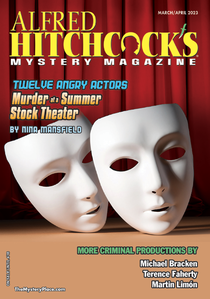This week, I decided to take up Charlotte's question about managing time and juggling the various aspects of a writer's career. My system has changed immensely over the years. My first novel, DO OR DIE was published 24 years ago, before social media, websites, goodreads, etc. Many of the readers I was hoping to reach didn't even have email. It's difficult to imagine how we coped, but we did! I developed a database (using D-Base) of all my friends and family who might be remotely interested in reading my books, and I added each new contact and reader to this database. I could generate mailing lists and print address labels from that database. When I released a new book, I printed postcards and mailed them out, announcing the book and, if they were local, inviting them to my book launch. The book launch was a huge way to get the word out. I also connected with bookstores within a reasonable driving distance from Ottawa and tried to arrange signings. Signings had two purposes - to sell books and to make a connection with booksellers. Sybil's advice to treat editors with respect applies equally to booksellers and librarians. They are your biggest ally.
My Facebook author page and my website are two other avenues through which I try to engage people and keep them up to date on my writing career. I cross-post info on Facebook and Instagram about book signings, launches, etc. When I look back, what a long way we've come in twenty-five years.
But the other aspect of my writing career - the actual writing - has barely changed at all. I write my first draft longhand using pen and pads of lined yellow paper. I began by squeezing writing time into the evenings once the family was settled, but since I've retired, I write every morning for three to four hours when I'm writing the first draft, saving the afternoon for the social media and promotional stuff. First I warm up my brain with coffee, social media browsing, and various internet fiddling, and then I get down to work. My goal is a scene a day, usually five to six handwritten pages. At that rate the first draft usually takes about four to six months. I do no editing until I have written "the end", and then my first task is to transcribe the illegible mess onto the computer. Initial editing occurs during this process, as well as creating a fat file of things that need to be fixed, added, changed, or deleted. Then comes all the rewrites to fix those. That process can take two to three months. I find the whole process from the first research to sending it in to the publisher takes about a year.
Of course, I was usually contracted to one book a year, so this schedule was born out of necessity! Now that my most recent books are spread farther apart, I am enjoying a more leisurely pace, with time for other interests and fun while still getting the book done on time.




















